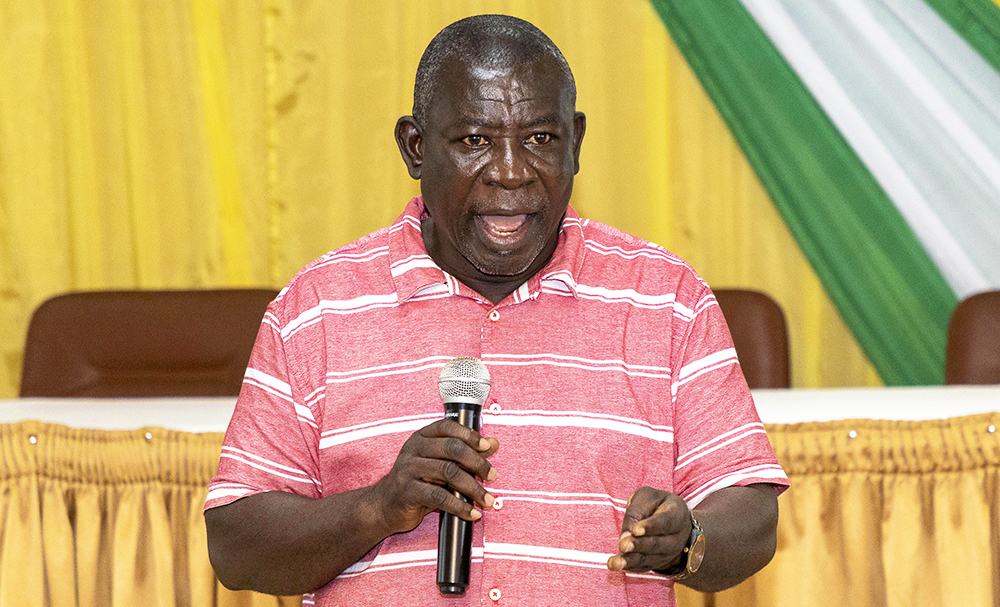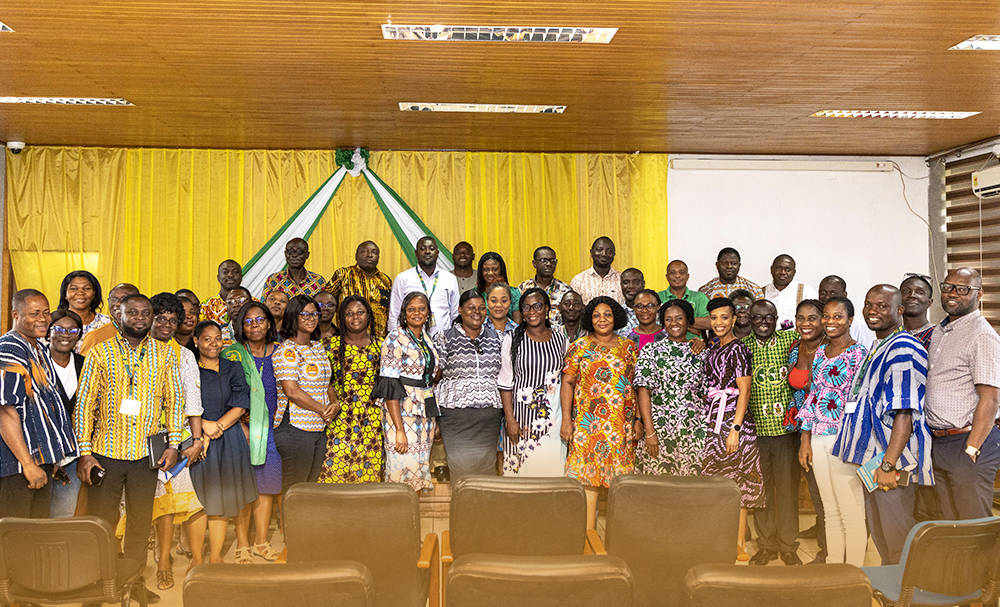The Registrar’s Offices Workshop and Seminar Committee in collaboration with the Peer Review Committee of the Registrar’s Offices has organised a workshop dubbed ‘‘Memo Writing Clinic’’ for Senior Members of the Registrar’s Offices on Friday 2nd August 2024 at the Gardiner Conference Room, KNUST.
According to the Deputy Registrar of the Human Resource Development Division (HRDD), Mr. Yaw Owusu-Asamoah, Senior Members have presented essay-like memos to the Committee for review over the years. He said this has been a challenge for the Peer Review Committee as it causes delays and long hours to review each memo, hence, the need for the workshop. The workshop, he stated, would equip Senior Members with additional skills and knowledge to write good memos for promotions.

In his presentation, Mr. Owusu-Asamoah emphasised that universities, like other organisations, thrive on new ideas, therefore, memoranda and position papers are vital tools for expressing opinions that can lead to policy changes after careful consideration by appropriate committees. He highlighted the importance of memoranda in providing fresh ideas for improvement, raising issues for discussion, discontinuing unacceptable practices, setting the stage for policy initiation, and presenting research findings when necessary.
Highlighting some features of a good memoranda/position paper, he disclosed that it should have a good, short, and precise title, identify a real problem and the appropriate remedies to solving the problem, have a good introduction with the background, problem statement and how the paper intends to address the problem and recommendations. He also advised participants against rushing when writing memos.
Mr. Owusu-Asamoah further explained the procedures for submitting memoranda, which include having colleagues review the memos before submission, signing, and keeping a copy for future reference. Both hard and soft copies should be submitted to the Registrar through their immediate Heads. Additionally, he outlined the assessment and grading criteria for publications.
During an interactive session with the Peer Review Committee, Senior Members were advised to continuously read and broaden their knowledge as Administrators to enhance the quality of their memos. They were encouraged to follow a structured approach in writing memos to ensure professionalism.

















